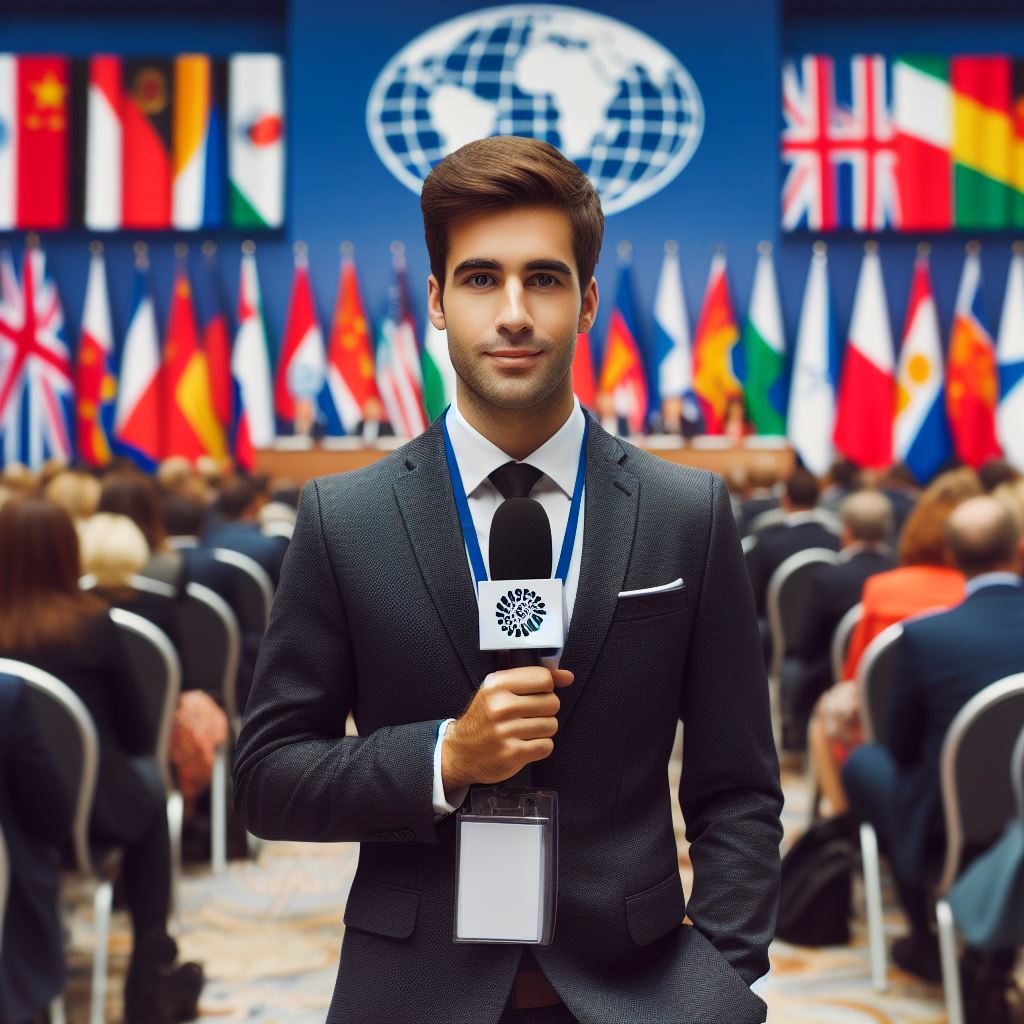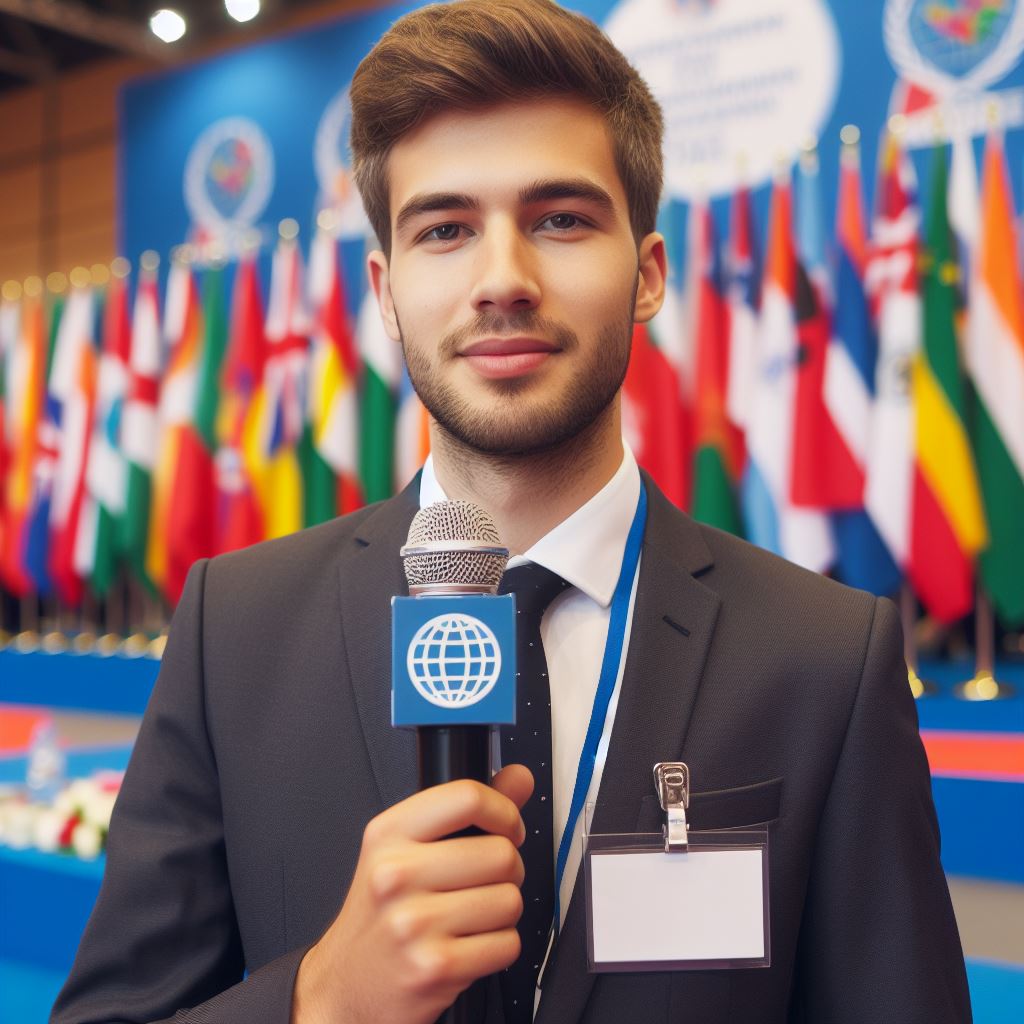Introduction
War correspondents play a crucial role in journalism and demonstrate immense bravery by reporting from conflict zones in the UK.
In the tumultuous theater of global conflicts, a select group of individuals emerges as the vanguards of truth, risking life and limb to chronicle the harsh realities of war.
Among them stand the war correspondents of the United Kingdom, a breed of journalists whose unwavering commitment to fearless reporting has become synonymous with unparalleled courage and resilience.
In the face of adversity, these intrepid storytellers navigate war zones, armed not with weapons but with pens and cameras, driven by an indomitable spirit to unveil the untold stories that unfold amid the chaos.
This is a tribute to the UK’s bravest journalists, whose narratives not only capture the essence of war but also serve as a testament to the power of journalism in the pursuit of justice and understanding.
History and Importance of War Correspondents
The origins of war correspondents and their role in reporting on wars
War correspondents have a rich history dating back to ancient times.
They have always played a crucial role in reporting on wars and conflicts.
During World War I, war correspondents faced significant risks and challenges.
They had to navigate treacherous battlefields to bring news from the frontlines.
Their reports became vital sources of information for the public and policymakers.
How their reporting has shaped public opinion and influenced policy decisions
War correspondents have the power to shape public opinion and influence policy decisions.
Their coverage can sway public support or opposition towards a particular conflict.
They act as a bridge between the realities of war and people in their living rooms.
During the Vietnam War, journalists like Walter Cronkite played a pivotal role.
Cronkite’s reporting turned public sentiment against the war, influencing policy decisions.
Personalized UK Career Consulting
Receive tailored career guidance designed just for you. Get actionable steps and expert support to boost your career in 1-3 days. Take control of your career now.
Get StartedThe risks and challenges they face while reporting from dangerous locations
War correspondents often face immense risks and challenges while reporting from dangerous locations.
They risk their lives to bring the truth to light, often working in war-torn areas.
Besides physical dangers, they also witness the horrors of war firsthand.
Their mental and emotional well-being may be deeply affected by these experiences.
Despite the hardships, war correspondents are crucial to transparency and accountability.
Their work holds governments and armed forces accountable for their actions.
They provide a voice to the victims and expose the atrocities committed during wars.
War correspondents give the public an unfiltered view of the human cost of conflicts.
Their reports help ensure that policymakers are aware of the consequences of war.
Without war correspondents, the public would be left in the dark about the realities of war.
They shed light on the sacrifice and bravery of soldiers fighting on the frontlines.
War correspondents have a long and storied tradition, playing a vital role in shaping public opinion and influencing policy decisions.
They face immense risks and challenges while reporting from dangerous locations, but their work is essential for transparency and accountability.
Without war correspondents, the true realities of war would remain hidden, and the sacrifices of those on the frontlines would go unnoticed.
Your Dream Job Starts with a Perfect CV
Get a tailored CV and cover letter that captures your unique strengths and stands out in your industry. Let us help you make an unforgettable first impression.
Get StartedRead: UK Journalism Law: What You Should Know
Training and Skills required
Being a war correspondent is a demanding and dangerous job that requires specific qualifications and skills.
Here are the necessary requirements to become a war correspondent:
Qualifications
- A bachelor’s degree in journalism or a related field is usually required.
- Strong writing and communication skills are essential to effectively convey information from conflict zones.
- Knowledge of international relations, politics, and history is valuable for understanding the context of wars.
- Proficiency in at least one foreign language is beneficial for interacting with locals and understanding their perspectives.
- Previous experience in journalism, especially reporting from challenging environments, is highly advantageous.
Military Strategy, Geopolitics, and Cultural Sensitivity
- Understanding military strategy is crucial for war correspondents as it helps them navigate the battlefield and interpret events accurately.
- Knowledge of geopolitics, including the relationships between nations, can provide insights into the causes and dynamics of conflicts.
- Being culturally sensitive is vital to building relationships with locals and avoiding cultural misunderstandings that could jeopardize their safety.
- War correspondents need to be well-informed about the region they are reporting on and keep up to date with political developments.
Physical and Mental Resilience
- War correspondents must possess physical fitness to endure the demanding conditions of conflict zones.
- Mental resilience is crucial for dealing with the stress, trauma, and uncertainty that come with reporting from war-torn areas.
- The ability to make quick decisions under pressure and adapt to changing situations is essential for survival.
- Developing coping mechanisms, such as practicing mindfulness or seeking support, can help maintain mental well-being.
- Training in first aid and personal security measures is necessary to mitigate risks and increase chances of survival.
In general, becoming a war correspondent requires a combination of qualifications, knowledge, and personal attributes.
Adapting to the challenges of reporting from conflict zones necessitates a deep understanding of military strategy, geopolitics, and cultural sensitivity.
Moreover, physical and mental resilience is crucial for coping with the demanding and dangerous situations encountered on the front lines.
War correspondents play a vital role in bringing news and information to the world, often at great personal risk, and their courage and skills should be acknowledged and valued.
Read: Balancing Bias: UK Journalists’ Approach
Reporting from Conflict Zones
The process of reporting from conflict zones and the challenges faced by war correspondents
- Reporting from conflict zones is a complex process that involves numerous challenges for war correspondents.
- War correspondents often face dangers such as violence, bombings, kidnappings, and unpredictable situations.
- They must enter war-torn areas to gather first-hand information and witness the events as they unfold.
- While reporting from conflict zones, journalists have to navigate through chaotic circumstances and maintain their objectivity.
The need for accurate and unbiased reporting amidst chaotic circumstances
Accurate and unbiased reporting becomes crucial in conflict zones where misinformation can have severe consequences.
- War correspondents strive to provide accurate information by verifying the facts and conducting thorough research.
- They interview multiple sources, cross-check their stories, and corroborate the details before reporting.
- Unbiased reporting is essential to prevent propaganda or misinformation from influencing public opinion.
The ethical dilemmas of balancing reporting with personal safety and the safety of interviewees
The challenges of reporting from conflict zones often lead to ethical dilemmas for journalists.
- Journalists face the dilemma of balancing their duty to report accurately against ensuring their personal safety.
- They must constantly evaluate the risks and take necessary precautions to protect themselves in dangerous environments.
- Moreover, war correspondents must also consider the safety of their interviewees and the potential repercussions of their stories.
- They must respect the privacy and security of those they interview, especially in sensitive situations.
War correspondents also face challenges in accessing reliable sources and overcoming censorship.
- Some conflict zones have restricted access, making it difficult for journalists to gather information and report the truth.
- Intimidation and censorship by warring factions can also hinder journalists’ ability to report freely and independently.
- Despite these challenges, war correspondents often risk their lives to bring the realities of conflict to the world.
- They believe that shedding light on the atrocities committed during wars can lead to awareness and change.
Reporting from conflict zones requires bravery, resilience, and a commitment to truth-telling.
- War correspondents willingly put themselves in harm’s way to fulfill their journalistic duty.
- Their reports serve as a vital source of information for the public, policymakers, and humanitarian agencies.
- Their relentless pursuit of accurate and unbiased reporting plays a crucial role in shaping public opinion and understanding of conflicts.
In essence, reporting from conflict zones is a highly challenging task that demands both physical and ethical courage.
War correspondents face numerous dangers while striving to provide accurate and unbiased reporting.
They must navigate through chaotic circumstances and make difficult decisions regarding personal safety.
Optimize Your LinkedIn for Success
Boost your LinkedIn profile with a professional bio, keyword-rich headline, and strategic recommendations that attract recruiters. Stand out from the crowd and get noticed.
Optimize NowFurthermore, they must protect the safety and privacy of those they interview.
Despite these challenges, war correspondents continue to risk their lives to shed light on the reality of conflict.
Their bravery and unwavering commitment to truth-telling make them some of the UK’s bravest journalists.
Read: The Future of Print Media in the UK

UK’s Bravest War Correspondents
War correspondents play a vital role in bringing news from conflict zones to the public, and the UK has had its fair share of brave journalists who have risked their lives to report on wars.
Some notable war correspondents from the UK and their heroic acts
Here are some notable war correspondents from the UK and the heroic acts that define their careers:
- Frank Gardner: Shot and wounded in Saudi Arabia, Gardner survived and continued reporting.
- Kate Adie: Dodged bullets during the Tiananmen Square massacre, earning her acclaim for bravery.
- Marie Colvin: Killed in Syria while reporting on the besieged city of Homs, showcasing incredible dedication.
- Robert Fisk: Witnessed bombings in war-torn countries, bringing forth the truth despite personal danger.
- James Nachtwey: Captured stunning photographs in conflict zones, exposing the horrors of war.
Specific incidents or stories that demonstrate their courage and dedication
These war correspondents have shown immense courage and dedication in their pursuit of truth amidst chaos.
Their stories are testaments to their bravery:
- Frank Gardner’s miraculous survival after being shot by Al-Qaeda militants in Riyadh was a testament to his determination to continue reporting in the face of adversity.
- Kate Adie’s memorable account of crawling through the streets of Beijing while bullets whizzed above her head during the 1989 Tiananmen Square massacre highlighted her unwavering resolve.
- Marie Colvin’s tragic death in Syria, where she knowingly put herself in harm’s way to provide first-hand accounts of the suffering of civilians, showed her unwavering commitment to exposing the truth.
- Robert Fisk’s fearless reporting from war-torn countries like Lebanon and Iraq, where he witnessed bombings and navigated dangerous situations, showcased his relentless pursuit of the facts.
- James Nachtwey’s powerful photographs from conflict zones such as Kosovo and Afghanistan shed light on the human cost of war, often at great personal risk.
Their impact on journalism and the wider public’s understanding of war
These brave war correspondents have not only impacted journalism but also shaped the public’s understanding of war:
- Their reports have given voice to the voiceless, humanizing the victims of war and urging the world to take notice.
- By risking their lives to be on the frontlines of conflicts, they have challenged the sanitized narratives often presented by governments and military institutions.
- These correspondents have brought the reality of war into the living rooms of ordinary citizens, fostering empathy, and shaping public opinion.
- Their dedication to truth-telling has inspired countless journalists and highlighted the importance of independent reporting in holding power accountable.
- Through their experiences, they have shown the world the devastating consequences of warfare, provoking conversations about peace, diplomacy, and the true cost of conflict.
Their bravery and unwavering commitment to reporting in dangerous environments deserve our utmost respect.
These war correspondents have made an indelible mark on journalism and have played a critical role in shaping our understanding of war.
Read: UK Journalists and Mental Health: A Study
Role in Society and Journalism
War correspondents play a significant role in society and journalism, as they are responsible for informing the public about war atrocities and conflicts.
Through their reporting, they give voices to the voiceless and shed light on human rights abuses.
The significance of war correspondents in informing the public about war atrocities and conflicts
The work of war correspondents is crucial in ensuring that the public remains informed about the realities of war.
They have the responsibility to bring to light the atrocities that occur in war zones, exposing the horrors that are often hidden from the general public.
Their firsthand accounts and eyewitness testimonies provide a unique perspective that cannot be obtained from other sources.
Their role in giving voices to the voiceless and shedding light on human rights abuses
By reporting on war atrocities and conflicts, war correspondents serve as advocates for the voiceless victims.
They give a platform to those who are silenced and oppressed, amplifying their stories and demanding justice.
In doing so, they raise awareness about the human rights abuses that occur during times of conflict, forcing the international community to take notice and take action.
The impact of war correspondents’ reporting in shaping public opinion and policy
War correspondents also have a significant impact on shaping public opinion and policy.
Through their reporting, they have the power to influence public perception of war and the political decisions made by governments.
Their stories, images, and videos force people to confront the brutal realities of war, often leading to public outrage and calls for change.
Moreover, war correspondents’ reporting can directly influence policy decisions.
Their investigations and in-depth reporting often uncover crucial information that policymakers use to assess the effectiveness of military strategies and evaluate the need for humanitarian intervention.
By shedding light on the consequences of war, war correspondents help shape public opinion, prompting governments to take action and work towards diplomatic solutions.
Today, the role of war correspondents is more critical than ever. With the rise of social media and citizen journalism, anyone can share information from conflict zones.
However, war correspondents bring professionalism, expertise, and thorough investigation to their reporting.
Their commitment to truth and accuracy distinguishes them from other sources, providing the public with reliable information amidst a sea of rumors and propaganda.
It is important to recognize and support the work of war correspondents.
They risk their lives to bring us stories that we may not want to hear but need to know.
Their role in society and journalism is indispensable, reminding us of the horrors of war and urging us to strive for peace and justice.
As consumers of news, we must value their contributions and demand that their safety is a top priority for media organizations and governments alike.
In summary, war correspondents serve a vital role in society and journalism.
They play a crucial part in informing the public about war atrocities and conflicts.
Additionally, they bring attention to human rights abuses and give voices to the voiceless.
Their reporting has a significant impact on public opinion and policy, shaping the way we perceive and respond to the realities of war.
It is essential to recognize and support the work of war correspondents, as they continue to provide a vital service by exposing the truth and advocating for justice.
Conclusion
War correspondents in the UK truly exemplify bravery and dedication by reporting from dangerous locations.
They play a crucial role in upholding the principles of journalism and bringing the harsh realities of war to our attention.
It is essential to appreciate and support their work, as they provide us with valuable insights and stories from the frontlines.
Let us acknowledge the sacrifices they make and ensure their safety as they continue to shed light on the horrors of war.
By standing behind war correspondents, we can contribute to maintaining a well-informed society and promoting the importance of a free press.
[E-Book for Sale]
500 Cutting-Edge Tech Startup Ideas for 2024 & 2025: Innovate, Create, Dominate
$19.99 • 500 Tech Startup Ideas • 62 pages
You will get inspired with 500 innovative tech startup ideas for 2024 and 2025, complete with concise descriptions to help you kickstart your entrepreneurial journey in AI, Blockchain, IoT, Fintech, and AR/VR.




